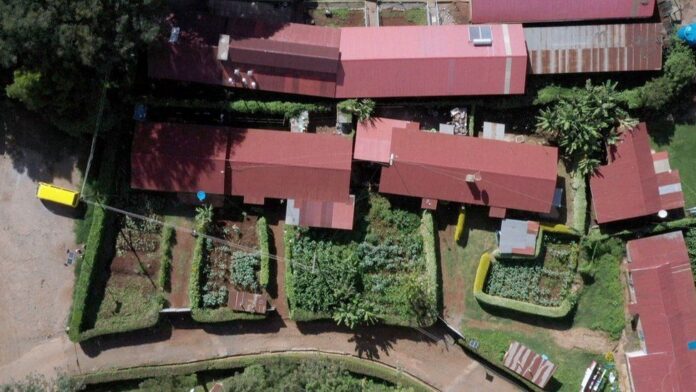In recent developments, concerns have emerged about the treatment and well-being of vulnerable elderly residents at a care home near Nairobi, Kenya’s capital. A recent undercover investigation conducted by BBC Africa Eye has revealed distressing instances of mistreatment and neglect within the facility.
The facility in question, known as the Presbyterian Church of East Africa (PCEA) Thogoto Care Home for the Aged, was initially established by the Women’s Guild of the local PCEA church. Despite its origins, the care home is now managed independently and provides shelter to around 50 elderly women and men. In a region where the elderly population is projected to triple over the next three decades, such care homes play a critical role in addressing the needs of an aging population.
The undercover investigation exposed unsettling practices, with secret filming capturing instances of physical mistreatment, neglect, and lack of proper medical attention. Footage showed staff members physically abusing residents, even encouraging violence towards them. In one instance, a staff member was seen hitting an elderly woman with a wooden stick after surrounding her along with other colleagues.
Moreover, evidence emerged of inadequate care, such as food being dumped onto tables without plates and medical conditions going untreated. The investigation brought to light disturbing conversations among staff members, with some admitting to using force and aggression on residents. Some elderly residents appeared to be suffering from untreated medical issues, such as one man who had a severe skin problem and was allegedly denied timely medical attention.

The management of the care home has faced accusations of not providing the necessary care for the elderly residents. While earlier images presented a different picture, undercover reporters spent 14 weeks gathering evidence that suggested a much more troubling reality. Allegations were made that the management was not prioritizing the residents’ well-being, leading to distressing situations where some residents were left to eat with their hands directly on the table due to lack of assistance.
The investigation revealed complex challenges facing care homes in Nairobi, where the elderly population is rapidly growing and care facilities are struggling to meet the increasing demand for their services. Many of these homes, supported by local churches or donations, face resource constraints that can impact the quality of care provided to residents.
In response to the findings, government officials have indicated a commitment to ensuring the well-being of elderly citizens in care homes. Joseph Motari, the principal secretary for social protection and senior citizens affairs, emphasized that any mistreatment or abuse of elderly residents would result in necessary punishment. The government also announced plans to conduct spot-checks on various private homes to ensure they meet the required standards.
In light of these revelations, it is evident that a comprehensive approach is needed to address the challenges facing care homes for the elderly in Nairobi and beyond. Efforts to improve conditions, ensure proper medical care, and provide a safe and dignified environment for the elderly population are essential as the region’s aging demographic continues to expand.


